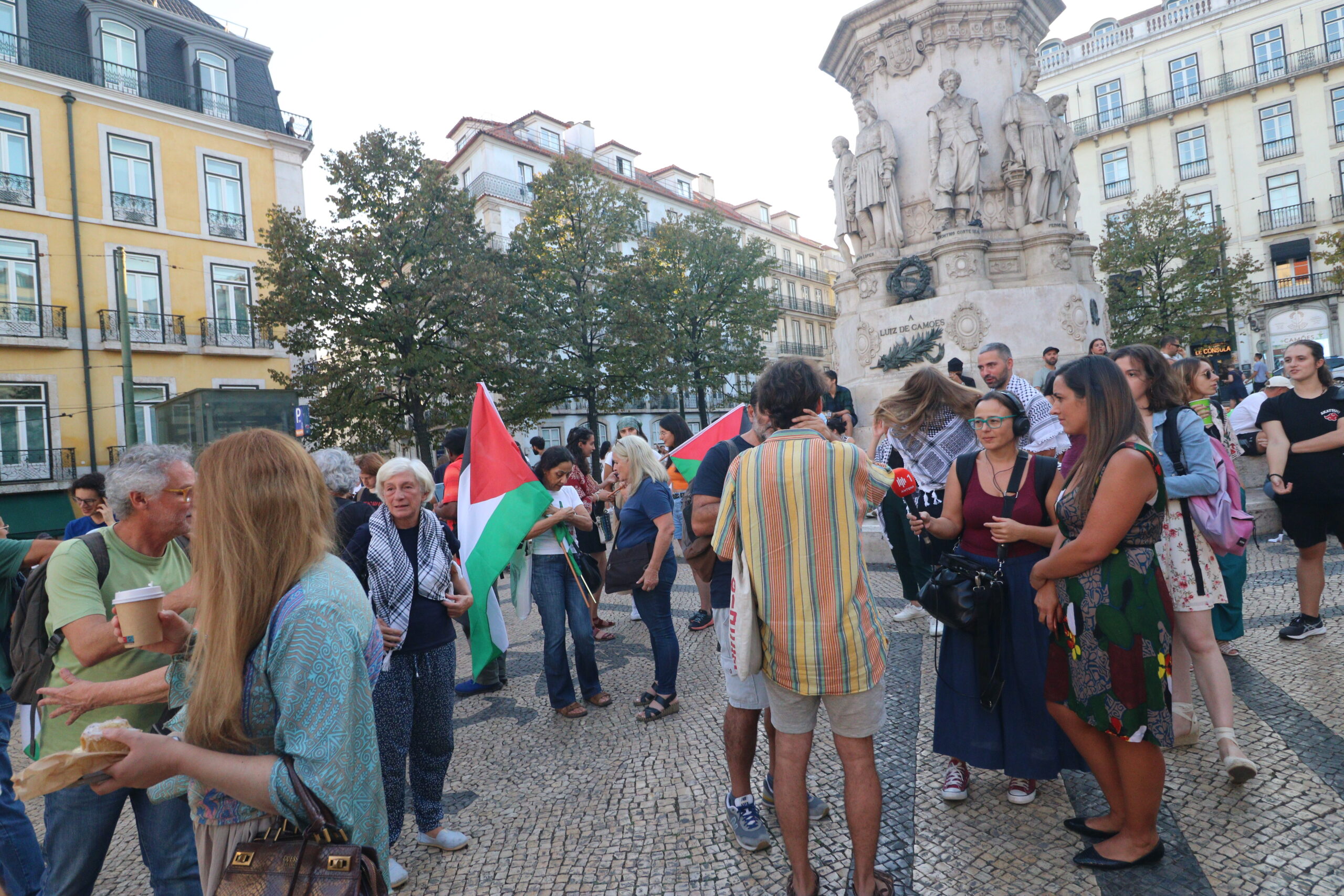October 7 will be remembered not as a day of battle but as a day of barbarity. Hamas crossed the border with one goal — to maximize civilian suffering. Families were slaughtered in their homes, women raped before being killed, children executed in front of their parents, and hundreds taken as hostages into Gaza’s tunnels. This was not a war, it was a pogrom — an act of terror designed to wound not only the living but the very idea of humanity. No cause, no grievance, no history can justify what was done. To call it “resistance” is to strip the word of meaning; to dress it up as justice is to side openly with atrocity.

October 9, 2023, Lisbon
And yet, just two days later, in Lisbon’s Praça Luís de Camões, there were people who seemed to do exactly that. In a city far removed from the gunfire and the screams, a group of demonstrators gathered with flags and keffiyehs, some sipping coffee and chatting casually, others chanting slogans with conviction. To a passerby, it may have looked like a routine protest — another square filled with symbols and slogans. But to Israeli eyes, still reeling from the images of October 7, it looked like something else entirely: celebration over massacre, solidarity not with the innocent, but with their killers.
There is something unbearable in that contrast. On one side of the Mediterranean, parents were still trying to identify the remains of their children. On the other side, in a sunlit European square, people were smiling beneath the very banners of those who carried out the slaughter. The moral blindness of it is staggering. To those who gathered in Lisbon, perhaps it felt righteous, perhaps even fashionable. But every raised flag in that square echoed back into Israel like a jeer, a cruel confirmation that even atrocity can find applause if you cloak it in the language of politics.
This is the heart of the indictment. Hamas’s atrocities were clear, visible, undeniable. To support them — whether by cheering, excusing, or relativizing — is to stand shoulder to shoulder with rape and murder. It is to decide, consciously or not, that civilian suffering is expendable so long as it fits your narrative. That is not solidarity, it is complicity. And it is a stain that Lisbon’s square cannot wash away.
So the question lingers, sharp and unforgiving. What was it worth? For Hamas, who traded human lives for propaganda videos; for the crowds in Europe who waved flags over the bodies of the dead; for anyone who thinks that terror can ever be a path to justice. What was worth the graves, the screams, the hostages still waiting in the dark? If the answer is silence, then perhaps it is because there is no answer that does not reveal the shame.
Leave a Reply